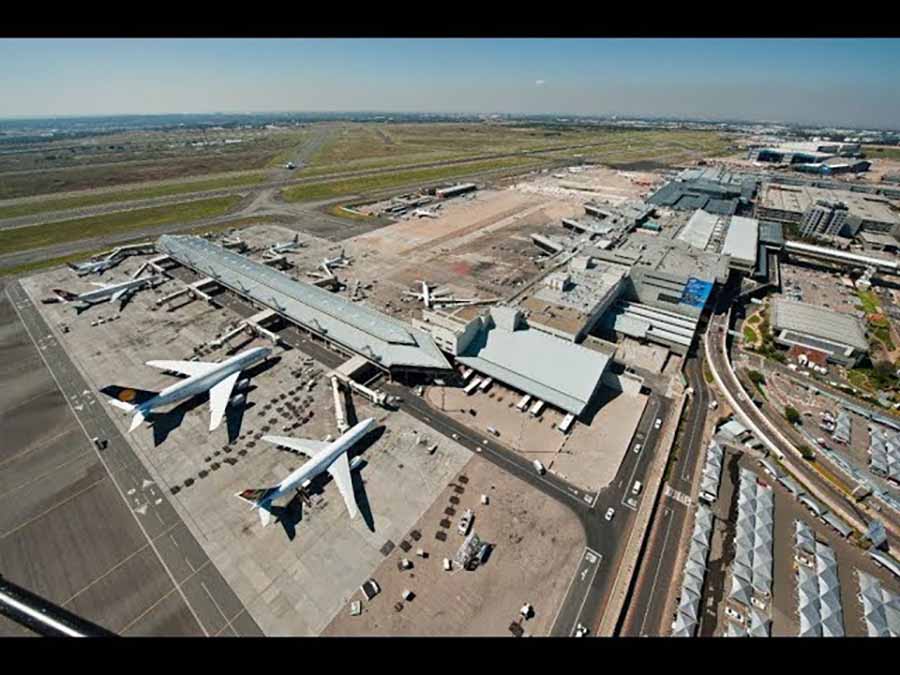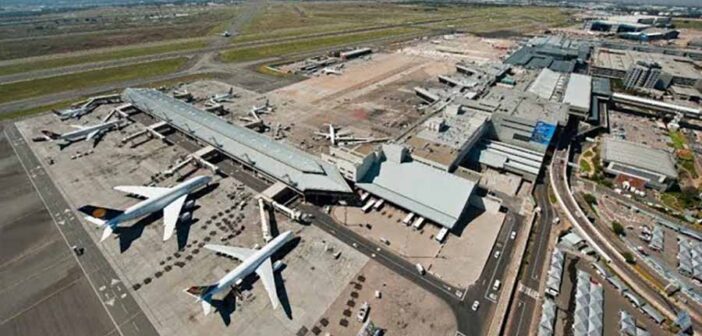
OR Tambo International Airport (JNB), located in Kempton Park, 20 kilometres from Johannesburg’s city centre and 50 kilometres from Pretoria, serves as Africa’s busiest airport, handling over 21 million passengers annually. The airport’s two main terminals—Terminal A for international flights and Terminal B for domestic—are connected by a central atrium, making navigation straightforward with clear English signage. The layout spans four levels, with arrivals and baggage claim on Level 0, retail and dining on Level 1, check-in and departures on Level 2, and airline services on Level 3. Passengers with mobility needs can access wheelchair assistance, accessible restrooms, and lifts, with support available through airlines or information desks if requested in advance.
Getting to and from the airport is convenient, with multiple transport options. The Gautrain, a high-speed rail, connects the airport to Johannesburg and Pretoria, taking about 15 minutes to Sandton for approximately 200 ZAR (£10). Buses, including Metrobus and private shuttles, operate to the city centre twice daily, with fares around 50 ZAR (£2.50).
Taxis, available outside arrivals, cost 300–400 ZAR (£15–£20) to Johannesburg, while ride-hailing services like Uber operate from designated pick-up zones. Car rental agencies, such as Avis and Hertz, are located in the arrivals hall, and the airport is accessible via the R24 and R21 highways, offering 11,500 parking spaces, including premium and basement options, with the first 20 minutes free for drop-offs. A 24-hour shuttle serves the off-site long-stay car park at Super South Gate.
The passenger experience is designed for efficiency, though high traffic can pose challenges. Over 400 check-in counters open three hours before international flights and two hours before domestic, closing 45 to 60 minutes prior.
Security screening averages 15 to 20 minutes, but queues can extend to an hour during peak morning and evening periods. Travellers should arrive early to manage potential congestion. Free Wi-Fi is available across the terminals, accessible via a quick registration, and charging stations are plentiful near gates and eateries. Premium lounges, including the iGA Lounge and airline-specific options like the Turkish Airlines Lounge, offer snacks, showers, and workspaces for around £40 or through Priority Pass. Additional amenities include a 24-hour medical clinic, prayer rooms, and baggage storage at BagPort, though passengers should wrap luggage due to reported pilfering risks.
Dining and retail options are extensive, with 32 restaurants and over 50 shops across both terminals. Eateries range from fast-food outlets like Steers and Debonairs to sit-down restaurants serving local and international cuisine, with a coffee priced at about £2 and meals up to £12. The duty-free mall in Terminal A offers perfumes, electronics, and African crafts, while shops like Big Five Duty Free and local boutiques sell souvenirs and clothing. Most outlets open at 5 am, with some operating 24/7. A post office and VAT refund point are available landside for added convenience.
On-time performance is generally solid, with most flights departing within 15 minutes of schedule, supported by two long runways accommodating large aircraft. However, weather conditions like thunderstorms and high passenger volumes can cause delays, particularly in summer. Passengers should check flight statuses via the airport’s app or digital boards. For connections, the interconnected terminals simplify transfers, with minimum connection times of 90 minutes for international-to-domestic and 45 minutes for domestic-to-domestic flights. Fast-track services, available for purchase, reduce wait times at immigration and security.
Potential delays often arise from peak-hour congestion, slow immigration processing, or baggage handling issues, with reports of theft prompting vigilance. Road traffic to the airport during rush hours can also affect arrivals, so extra travel time is advised.




